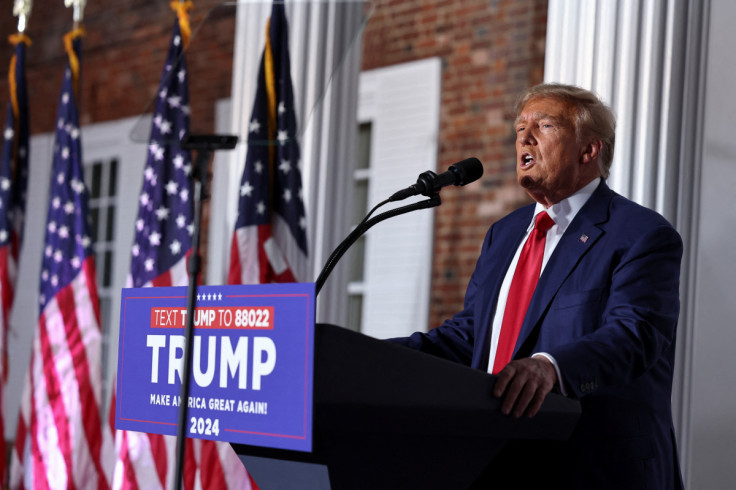US Judge Sets Aug. 14 Trial Date For Trump In Florida Documents Case

U.S. District Judge Aileen Cannon has set an initial trial date of Aug. 14 in Florida on former President Donald Trump's federal charges of willful retention of classified government records and obstruction of justice, according to a court order on Tuesday.
The Justice Department's special counsel in the case, Jack Smith, promised a speedy trial after a 37-count indictment charging Trump with willfully retaining classified government records and obstructing justice.
The date, if it holds, would put Trump on trial nine days ahead of the first Republican presidential debate scheduled for Aug. 23.
But the complexities of handling highly classified evidence, the degree to which Trump's legal team challenges the government's pretrial motions, and the way the judge manages the schedule could all lead to a trial that is anything but swift, legal experts say.
A spokesperson for Smith's office declined to comment, while Trump's lawyers did not immediately return requests for comment.
The latest order came after a U.S. judge on Monday ordered Trump's defense lawyers not to release evidence in the classified documents case to the media or the public, according to a court filing.
The order from U.S. Magistrate Judge Bruce Reinhart also put strict conditions on Trump's access to the materials.
Trump was arraigned in federal court in Miami last Tuesday, during which he pleaded not guilty to charges he unlawfully kept national-security documents when he left office and lied to officials who sought to recover them.
Cannon's order setting a tentative Aug. 14 trial is considered standard.
However, the case will need to proceed under a strict and meticulous set of rules set forth in a law known as the Classified Information Procedures Act (CIPA): a law that aims to protect classified evidence and manage how such records can be disclosed.
Cannon previously directed Trump's defense attorneys to start the process of seeking security clearances so they can review the evidence, as required by CIPA.
However, the government customarily files a motion with the court under CIPA that leads to the parties discussing the pretrial schedule - a step that has not yet happened in the case.
"It seems like a tight schedule to me, and courts are sometimes surprised at the ways in which classified information can slow a case down because of both the procedural law and the security measures involved," said David Aaron, a former federal prosecutor who is now with the law firm Perkins Coie.
© Copyright Thomson Reuters {{Year}}. All rights reserved.





















